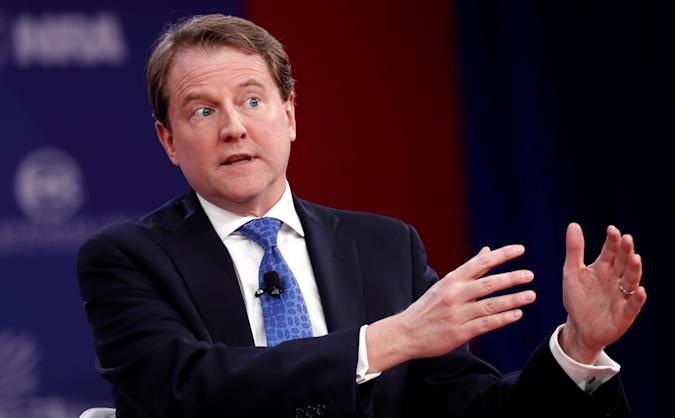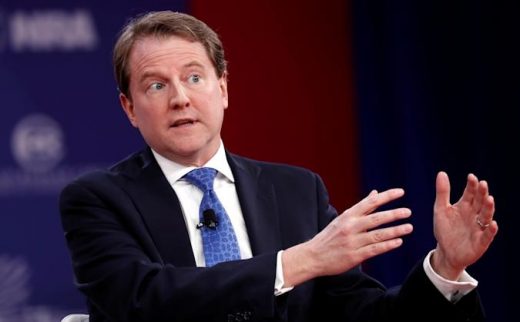Apple was told to quietly supply data on Trump’s White House counsel in 2018
Apple was told to quietly supply data on Trump’s White House counsel in 2018
The company wasn’t allowed to tell Don McGahn about the request.


Apple wasn’t just caught up in legal requests targeting Democrat politicians, it seems. New York Times sources claim the Justice Department subpoenaed Apple for information about former President Trump’s White House counsel, Don McGahn, in February 2018. It’s not clear what the FBI was looking for or if McGahn was the focus, but officials issued gag orders Apple from notifying the counsel for a while — it only told him about the request in May of this year.
The company reportedly didn’t say what it shared with the government, or outline the nature of the case. There were a number of potential issues at play. Trump was angry with McGahn at the time over Robert Mueller’s Russia investigation and January 2018 leak, but the Times considered that unlikely. However, the request might also have stemmed from the Mueller investigation itself (McGahn was the Trump campaign’s top lawyer in 2016). Trump’s former campaign manager, Paul Manafort, also faced fraud charges just a day before the subpoena.
We’ve asked Apple for comment. McGahn’s lawyer declined comment.
The news came just days after word that the Trump-era DOJ had requested account info from Apple for at least two Democrat politicians, Adam Schiff and Eric Swalwell, around the same time. In both cases, concerns have swirled not just around who was targeted, but how — just what did agents learn? The tech firm recently instituted a cap of 25 identifiers per request in a bid to prevent governments from requesting excessive amounts of data.
The incident also reinforces concerns about publicizing requests. Tech companies have pushed for greater transparency for years, and cases like this might explain why. While it’s unlikely Apple could have shared details specific to McGahn’s case in the short term, the years of gag orders certainly didn’t help any attempts to be open about government surveillance demands.
(15)


